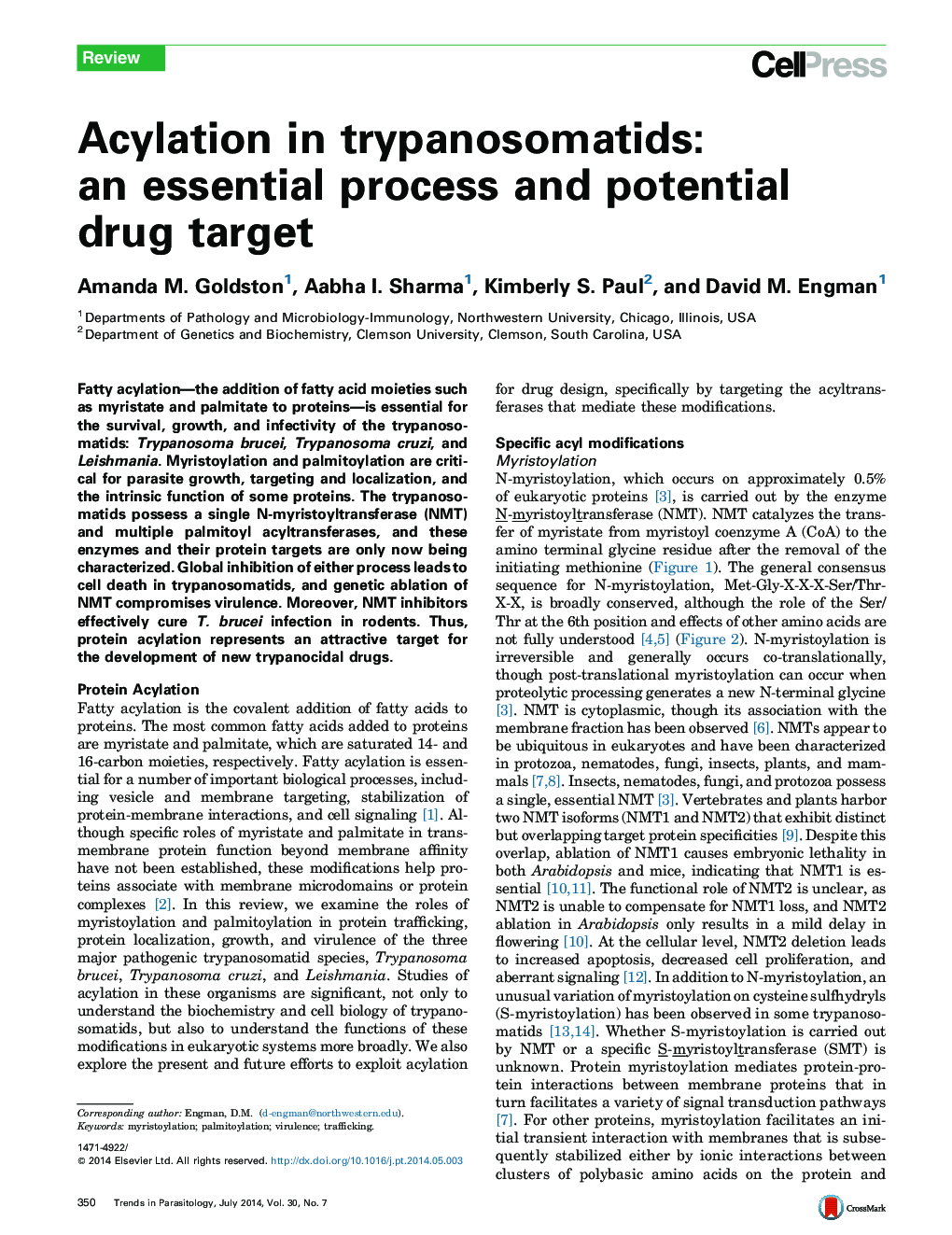| Article ID | Journal | Published Year | Pages | File Type |
|---|---|---|---|---|
| 3423091 | Trends in Parasitology | 2014 | 11 Pages |
•Fatty acylation is essential in trypanosomatids.•Inhibition of fatty acylation is a promising avenue for development of trypanocidal drugs.•Acyl modifications are critical determinants of protein trafficking and localization.•Some myristoylation inhibitors are highly specific for the trypanosomatid enzymes.
Fatty acylation—the addition of fatty acid moieties such as myristate and palmitate to proteins—is essential for the survival, growth, and infectivity of the trypanosomatids: Trypanosoma brucei, Trypanosoma cruzi, and Leishmania. Myristoylation and palmitoylation are critical for parasite growth, targeting and localization, and the intrinsic function of some proteins. The trypanosomatids possess a single N-myristoyltransferase (NMT) and multiple palmitoyl acyltransferases, and these enzymes and their protein targets are only now being characterized. Global inhibition of either process leads to cell death in trypanosomatids, and genetic ablation of NMT compromises virulence. Moreover, NMT inhibitors effectively cure T. brucei infection in rodents. Thus, protein acylation represents an attractive target for the development of new trypanocidal drugs.
